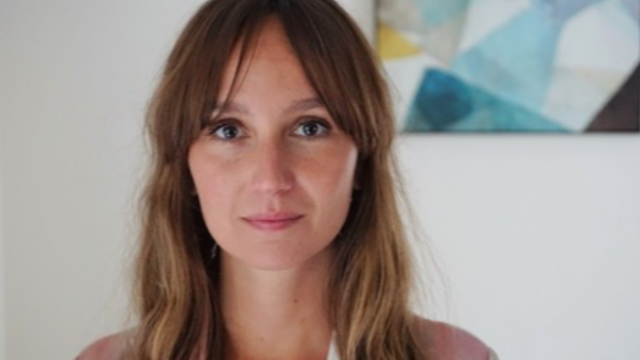Dear IFM community,
We are excited to share with you our latest portrait featuring Tara Chouchana, a Product Development and Production Manager for the swimwear brand Solid & Striped. Tara moved from Paris to New York City in 2018 and has experience working in production for brands like Chanel, Maje and La Halle. Tara completed her Master’s from IFM in 2015 and was eager to expand her career and gain valuable experience in the US. She loves exploring the seemingly endless city that is New York and is looking forward to the city opening up again and the opportunity to travel around the US as well.
Read about how Tara is navigating the pandemic from a personal and professional perspective.
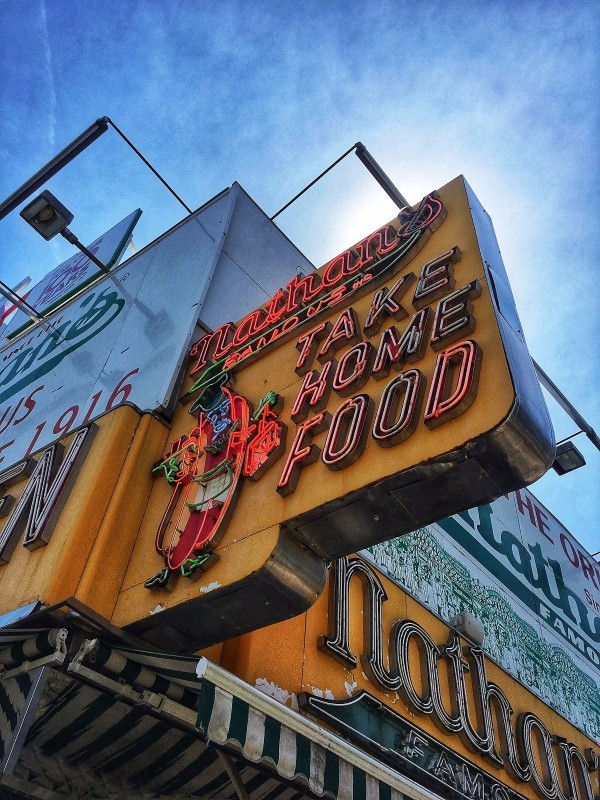
1/ Dear Tara, 18 months after you arrived in NY, you have to cope with a severe and unexpected crisis, how are you dealing with this on a personal and professional basis ?
The COVID-19 pandemic impacted my plans for 2020 for sure! I moved to New York a year and a half ago and I feel like I’ve only seen the tip of the iceberg — there’s still 90% of the city left to explore.
Spring and summer are my favorite seasons in New York, so I was really looking forward to this time of year. Some of my fondest memories from last year were of strolling down the Hudson river and stopping at the “Frying Pan”, a restaurant on boat docked at Pier 66, grabbing a bite, and watching the sun set behind New Jersey. Summer is also when I set out to discover New York from up above and learned about its flourishing rooftop scene with great delight (frozen drinks are my favorites!). After covering Manhattan from Harlem down to Chinatown, I decided to take on Brooklyn. From then on, getting on the downtown A or C train became a weekend ritual. And when the A/C started to become too familiar, I switched to the Q to get a taste of Coney Island’s sweet nostalgia. All of this to say — I definitely miss New York’s lively sights and cultural scene, but I’ll take a raincheck!
Because New York is only a few hours away from Paris, a lot of my friends had planned to come visit over the past few months, but instead we are doing video calls and planning our next getaway together — when this is all over. I haven’t been able to travel outside of the US because of my visa situation, so that has meant putting any plans to visit friends and family back in France on pause. I finally received my travel authorization last month, but now borders are closed virtually all around the world so I’m patiently (and excitedly) waiting for travel bans to be lifted — I’ve already waited a year, what’s a couple more months?
I think that what’s most difficult to handle is the state of uncertainty the whole world is in. It’s hard to make plans, both personally and professionally, since everything is so unstable and is changing from one day to the next, or so it seems. I manage Product Development and Production for a NY based swimwear and beachwear brand, and my work was essentially put on hold mid-March as our overseas factories progressively shut down and most of our wholesale orders got canceled. We had to find a way forward, so I started putting together different scenarios to be able to push through the uncertainty, week by week, despite the lack of information. I think that being able to stay agile and flexible is crucial in this type of situation.
My company was hit hard because, in addition to losing revenue from wholesale, we had opened our first store in Manhattan just a week before the shelter-in-place order. All the efforts and energy our team had put into setting up the store over the past months suddenly seemed meaningless. We had to review our orders, delay our new collection launch, and it was painful. But a couple of weeks later, ecomm sales took off. The fast-paced succession of seasons sometimes prevents products from finding their audience because they’re quickly replaced with newer items. In the end, the pandemic had somehow given us the chance to slow down, to re-evaluate our actual needs and to take the time to work and consume differently.
Many major players have started to realize that it is time for a change, and initiatives are blooming all around the world, like rewiringfashion.org, led by a group of independent designers, executives and retailers from around the world. I am curious to find out how the fashion industry can reinvent itself, and how we can contribute to this.
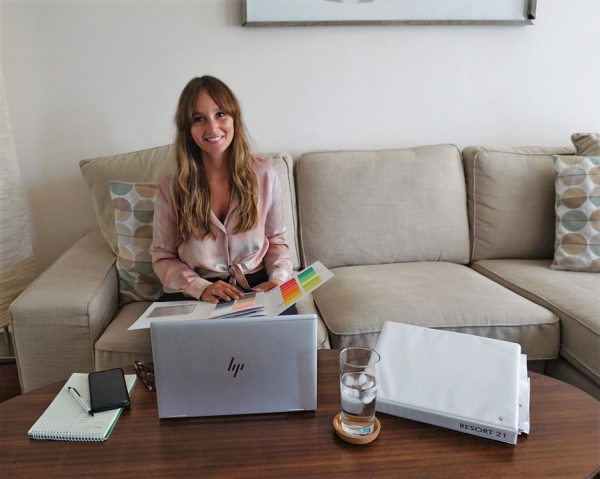
2/ Before COVID-19, how could you describe your professional experience in the US in comparison to what you experimented in France?
I was expecting a big change, especially because I moved from working at one of the most established luxury companies in the world, with hundreds of employees across the globe, to working for a NY brand that was created only 8 years ago and has a team of 20 people.
The first difference I noticed is that working in New York is different than working in other US cities or other cities in the world for that matter. This city never sleeps, and working people don’t seem to be getting a lot of sleep either. Joking aside, the boundary between work and home is close to nonexistent for a lot of people I know here, and the right to disconnect, seems like a foreign concept (and it’s true that it might just be a particularly French concept).
In New York, not only do my colleagues forgo their lunch breaks to eat in front of their computers, but most of them also choose to have their meal delivered instead of stepping out to get some fresh air. Lunchtime at my office is a procession of delivery men dropping off plastic and brown bags at the front desk.
Aside from this cultural gap, goals and challenges seem to be the same for fashion companies in France, in the US, and across the world: growth, sustainability, supply chain, communication with customers through social media and advertisement being just a few examples. Working within a smaller structure enables me to be more versatile and to collaborate closely with the Sales, Ecomm and Marketing teams. Brainstorming sessions about collaborations with new brands or social media communications are often company-wide, and I like the fact that all employees are included in these discussions, and not just the teams that are in charge of these projects.
Even if my job here is in many aspects similar to my previous work in Paris, my workday is organized a bit differently. My day usually starts earlier because I’m in charge of liaising with our European, Asian and Moroccan suppliers and the time difference means that I’m only able to communicate with them live in the morning. Whereas my workflow used to be more evenly spread out throughout the day, it’s now often very busy until the middle of the afternoon and quieter after that.
I was able to leverage the skills I’d developed in France to advance in my career in the US. I brought with me a set of work methods and processes that proved to be extremely useful in this fast-paced environment, and that enabled me to quickly manage my scope of work and to take on added responsibilities. Overall, my previous experience was a stepping stone to the position and workload I’m currently in charge of.
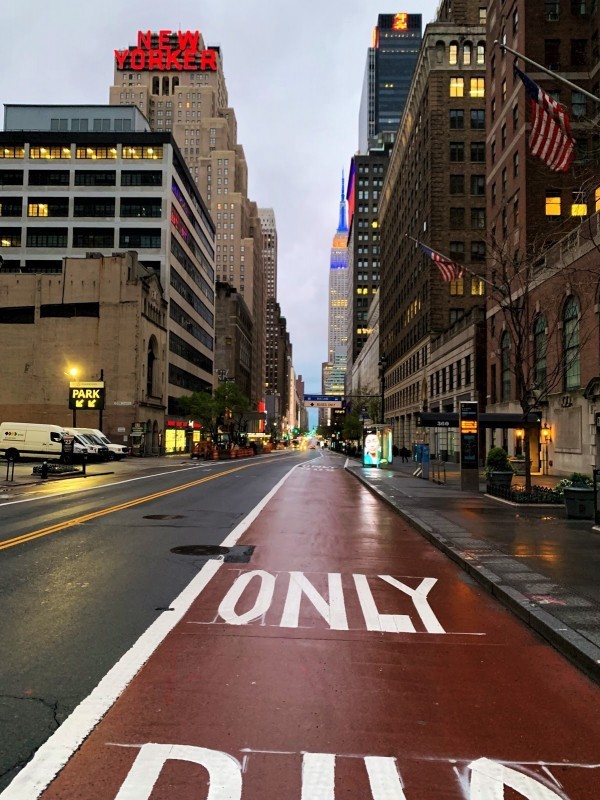
3/ Has IFM and its community been a resource for you at different moments ?
IFM allowed me to bridge the gap between my education in finance and my career in the fashion industry. The professors who coordinated the programs, their collaborators, the classes I took and the projects I worked on were all key to my development and growth. I also met people there who are now among my closest friends.
Moving to New York gave me a great opportunity to reconnect with the IFM Alumni network, and I attended events organized by the Association. Through these events, I got to meet like minded industry leaders that I admire. I had actually helped the NY IFM Alumni Association plan a special event in March that we sadly but necessarily had to cancel because of COVID-19. I hope we’ll be able to get together soon to make new plans!
4/ Could you tell us a few words of your experience of the IFM mentoring program ?
It’s a great initiative! I’m grateful that Patricia put me in touch with Teresa. The first connection I actually had with IFM Alumni was through a friend of a friend, whom I was introduced to when I was starting to apply to fashion schools. She was in the Management program and I had a lot of questions about the course and the prospects. After I graduated, we regularly met to share stories about our jobs and bounce ideas off of each other. I enjoyed these moments — in retrospect, they were an early and informal iterating of mentoring sessions.
I’m glad that the IFM Alumni launched a mentoring program because I know first-hand how valuable they can be, especially in this climate of ambiguity. For most students, completing their degree is synonymous with tremendous opportunities, but it can also be stressful. It means they have to leave the IFM cocoon to dive into the competitive fashion and luxury world. I hope that I can be helpful to Teresa and to future IFM graduates and help them navigate the post-IFM life!
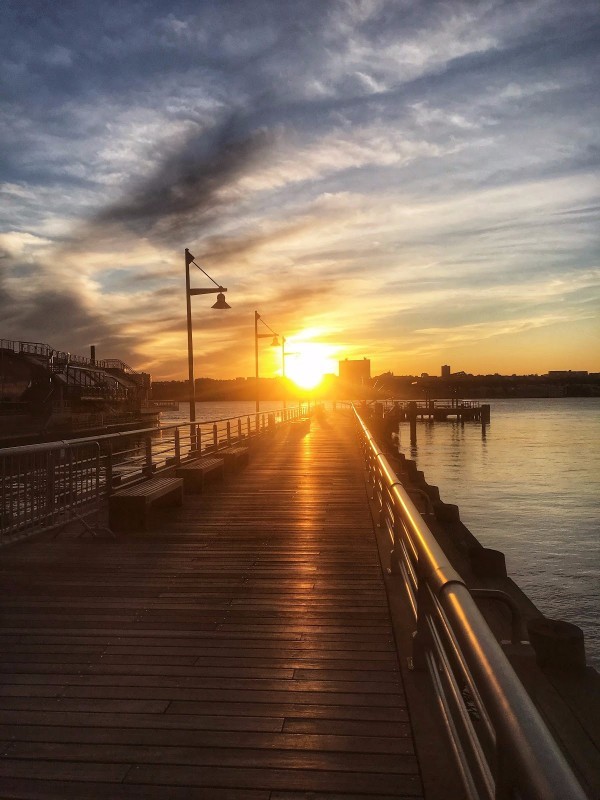
5/ How does the current social situation and the BLM movement impact your work?
The crimes and atrocities that the world has witnessed over the past few weeks have yet again brought to light the pervasiveness of systemic racism and injustice. Our society, our institutions, and our economy were built through the prism of white men. The Fashion industry is no exception, and minorities are underrepresented within companies as well as in ad campaigns of many mainstream brands. Today, a lot of them are committing to make donations to associations defending minorities’ rights (NAACP, ACLU, BLM, Color of Change), to make their recruiting practices more inclusive, to use their platforms to stand up against racism and discrimination – in a word, to do better.
Bolstered by the Black Lives Matter movement in the United States, many Black people have used social media to make their voices heard and to relay the discrimination they have experienced in order to denounce the injustices they have to face every day. As social activist Angela Davis said: “in a racist society, it is not enough to be non-racist, we must be anti-racist.” It is our duty to listen, to educate ourselves, to recognize the white privilege both on an individual level and a corporate level, in order to help fight against racism.
...
Phase two of reopening has just started in New York and the city is starting to feel alive again, although most companies have decided to not re-open their offices until the end of summer or early fall. States like Florida and Texas that re-opened earlier are seeing a surge in cases, which is leading organizations to think about preparing for a second wave in the fall. Nonetheless, New Yorkers are beginning to socialize again and work on new projects. The Black Lives Matter protests have slowed, but are still top of mind for many companies working to implement new initiatives to combat systemic racism. Sephora US just signed the 15% pledge, which promises 15% of its shelves will include products from black-owned businesses. And the CFDA recently launched some fundraising initiatives for independent black talents and social justice organizations.
It has certainly been an emotionally charged time for the US right now, with an election around the corner, but most Americans can agree that they are optimistic for the future.
Caroline Tibbetts

Comments0
Please log in to see or add a comment
Suggested Articles


